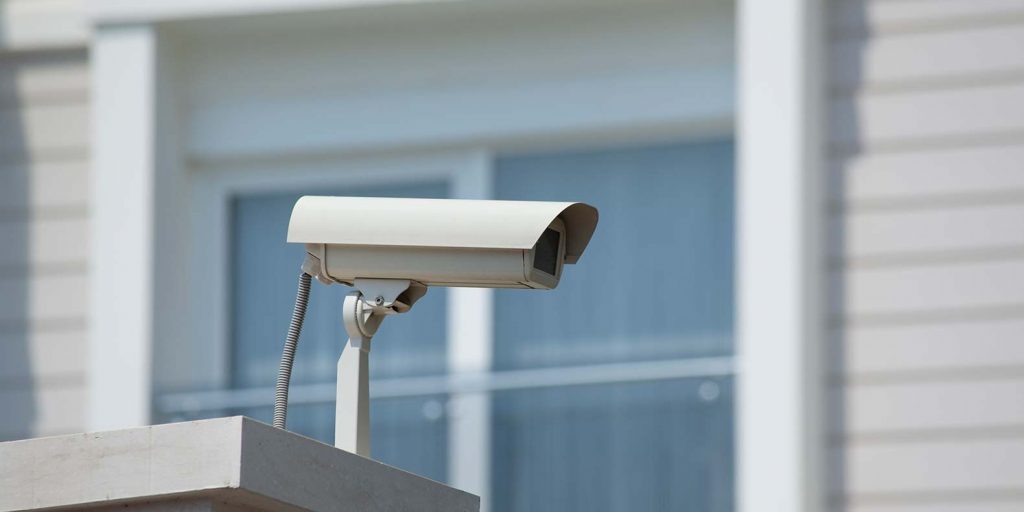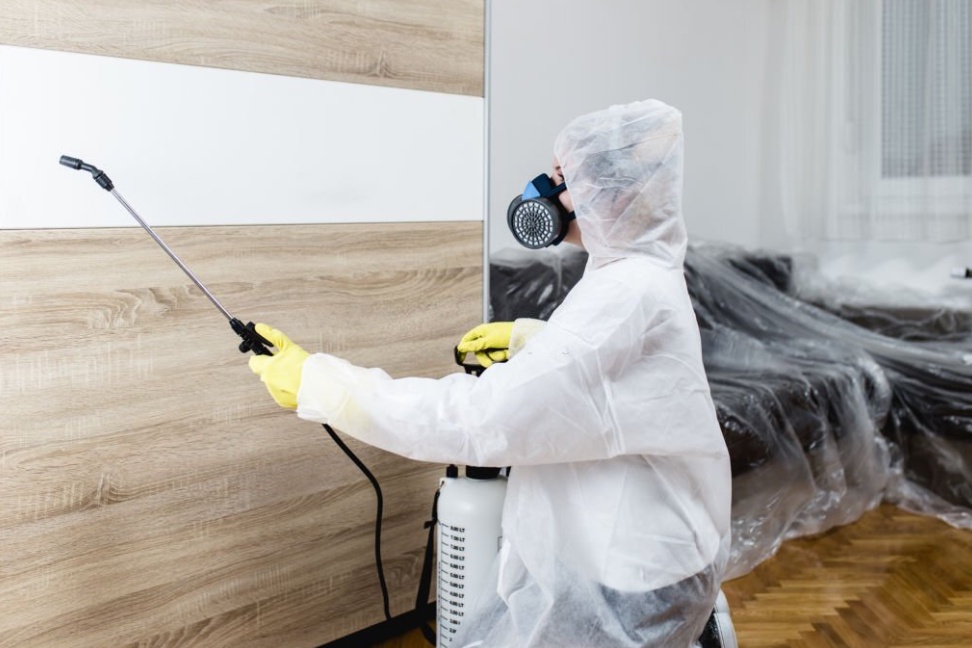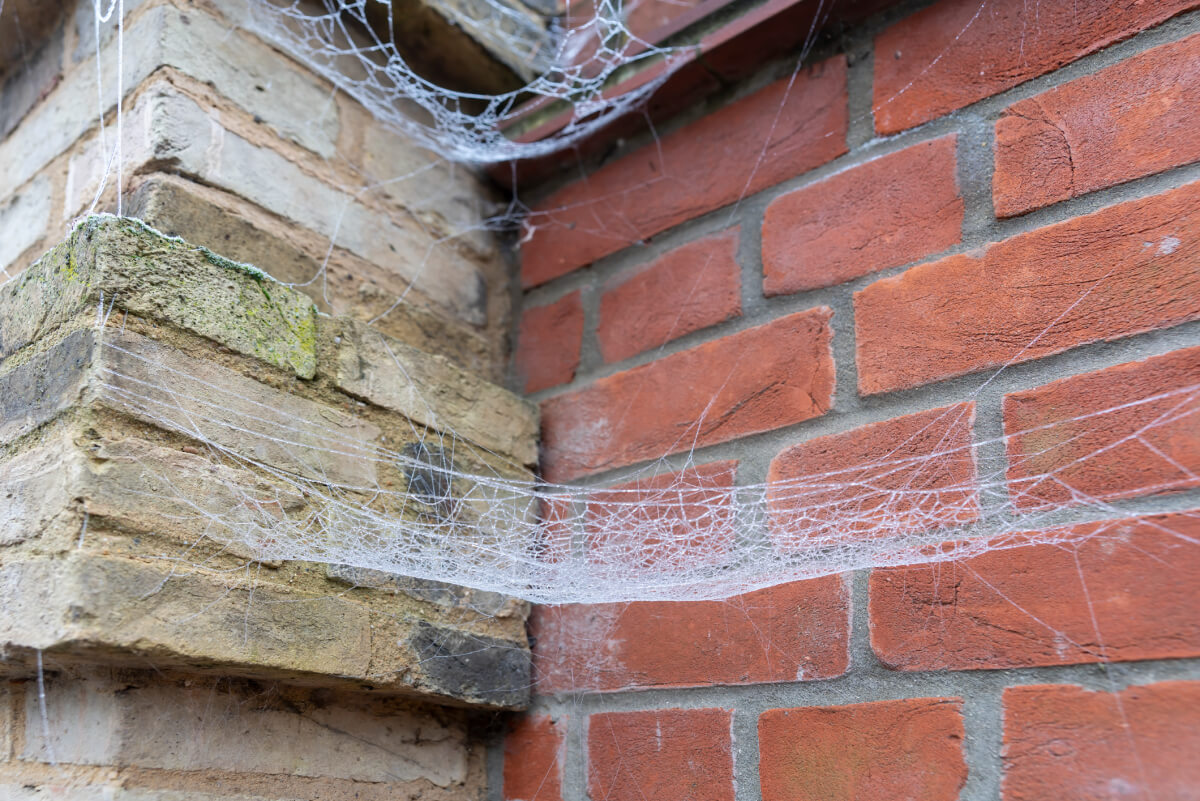How to keep spiders off security cameras is a common concern for homeowners and business owners alike. Spiders are attracted to security cameras for a variety of reasons, including the presence of insects, the warmth of the camera housing, and the dark, secluded spaces they offer. These eight-legged creatures can create a nuisance by building webs, interfering with camera operation, and even posing a potential health risk.
Understanding spider behavior is crucial for effectively deterring them from your security cameras. This guide explores various methods to prevent spider infestations, including preventive measures, physical barriers, regular cleaning, and alternative solutions.
Understanding Spider Behavior
Spiders are often found in and around security cameras, which can be frustrating for homeowners and businesses. Understanding why spiders are attracted to security cameras is crucial to developing effective strategies to deter them.
Reasons for Spider Attraction
Spiders are drawn to security cameras for several reasons:
- Shelter and Protection: Security cameras, particularly those mounted outdoors, can provide spiders with a safe and protected space to build their webs. The camera’s structure, with its various nooks and crannies, offers ideal hiding spots for spiders to escape predators and weather elements.
- Food Source: The presence of insects attracted to the camera’s light or the surrounding area can be a significant food source for spiders. This abundance of prey makes the area around the camera a desirable location for spiders to establish their webs.
- Darkness and Humidity: Security cameras are often located in dark and humid areas, which are preferred environments for many spider species. These conditions provide a favorable habitat for spiders to thrive and reproduce.
Types of Spiders
Several types of spiders are commonly found near security cameras. Some of the most prevalent include:
- Orb-Weavers: These spiders are known for their intricate, circular webs. They are often found in outdoor settings and are attracted to the light emitted by security cameras.
- Wolf Spiders: These spiders are typically brown or gray and have large eyes. They are active hunters and are not known to build webs. However, they may seek shelter near security cameras, especially during the day.
- Jumping Spiders: These small, colorful spiders have excellent vision and can jump great distances. They are often found in outdoor settings and may be attracted to the light of security cameras.
Environmental Factors, How to keep spiders off security cameras
Several environmental factors can contribute to spider infestations around security cameras:
- Location: Security cameras placed near vegetation, such as trees or shrubs, are more likely to attract spiders. These plants provide spiders with a source of food and shelter.
- Light: The light emitted by security cameras can attract insects, which in turn attract spiders.
- Moisture: Spiders thrive in humid environments. Security cameras located in areas with high moisture levels, such as near water sources or in poorly ventilated areas, are more susceptible to spider infestations.
Preventive Measures
The most effective way to keep spiders away from your security cameras is to make your camera’s environment less appealing to them. Spiders are attracted to dark, undisturbed areas, so keeping your camera clean and well-lit can deter them. You can also create a spider-resistant environment around your camera by using natural repellents and physical barriers.
Natural Repellents
Several natural repellents can help deter spiders from approaching your security cameras. These repellents are generally safe for use around cameras and other sensitive equipment.
- Peppermint oil: Spiders dislike the strong scent of peppermint oil. You can dilute peppermint oil with water and spray it around your security cameras.
- Citrus peels: The scent of citrus peels, such as orange and lemon peels, is also effective in repelling spiders. Place citrus peels around your security cameras.
- Vinegar: Vinegar is a natural acidic solution that spiders dislike. You can spray a mixture of vinegar and water around your security cameras.
- Tea tree oil: Tea tree oil has a strong, pungent odor that spiders find unpleasant. Dilute tea tree oil with water and spray it around your security cameras.
Creating a Spider-Resistant Environment
Here are some tips to create a spider-resistant environment around your security cameras:
- Keep the area around your cameras clean: Spiders are attracted to dust, dirt, and debris. Regularly clean the area around your cameras, removing any cobwebs or spider webs.
- Trim back vegetation: Spiders often build webs in dense vegetation. Trim back any plants or shrubs that are close to your security cameras.
- Seal cracks and crevices: Spiders can enter homes and buildings through cracks and crevices. Seal any gaps or holes around your security cameras.
- Use a light source: Spiders prefer dark environments. Install a light source near your security cameras to deter them. A motion-activated light can be particularly effective.
Physical Barriers: How To Keep Spiders Off Security Cameras

Physical barriers are a straightforward and effective method for preventing spiders from reaching your security cameras. These barriers create a physical separation between the camera and the surrounding environment, making it difficult for spiders to access the camera and spin webs.
Materials for Physical Barriers
Choosing the right materials for your physical barrier is essential for its effectiveness and longevity. Here are some common materials used to create physical barriers:
- Mesh Screen: Fine-mesh screens, commonly used for window screens, can effectively block spiders while still allowing for good visibility for your security camera.
- Plastic Sheeting: Clear plastic sheeting can be used to create a barrier around the camera, especially in areas with heavy spider activity. This provides a visual barrier and can be easily cleaned.
- PVC Pipe: PVC pipe can be cut and assembled into a cylindrical structure to enclose the camera, creating a barrier that spiders cannot easily climb.
- Weatherproof Sealant: Sealant can be applied around the edges of the barrier to create a tight seal, preventing spiders from squeezing through any gaps.
Installing Physical Barriers
The installation process for physical barriers will vary depending on the specific material and the camera setup. However, here are some general steps that can be followed:
- Prepare the Area: Clean the area around the camera to remove any existing webs or debris. This will make installation easier and help ensure the barrier is secure.
- Measure and Cut: Measure the area around the camera and cut the barrier material to the appropriate size. Ensure the barrier is large enough to cover the camera completely, leaving no gaps for spiders to enter.
- Attach the Barrier: Use zip ties, screws, or other fasteners to attach the barrier material to the camera mount or surrounding structure. Ensure the barrier is securely attached to prevent it from falling or being dislodged.
- Seal Gaps: Use weatherproof sealant to fill any gaps between the barrier and the camera mount or surrounding structure. This will prevent spiders from squeezing through any openings.
Regular Cleaning and Maintenance

Regular cleaning and maintenance of your security cameras are crucial in preventing spider infestations. By keeping your cameras clean and free of debris, you create an environment that is less attractive to spiders. A clean camera also ensures optimal performance and image quality.
Recommended Cleaning Schedule
It’s essential to establish a regular cleaning schedule for your security cameras. This schedule should include both cleaning and inspection to ensure that your cameras are functioning correctly and are free of spider webs and other debris. Here’s a suggested schedule:
- Weekly Inspection: Visually inspect your cameras for any signs of spider webs, dust, or other debris. This quick check will help you catch any problems early and prevent them from escalating.
- Monthly Cleaning: Perform a more thorough cleaning of your cameras using a soft cloth and a gentle cleaning solution. This cleaning should focus on the lens, housing, and any other exposed areas.
- Quarterly Deep Clean: Conduct a deep cleaning of your cameras, including removing and cleaning the lens and housing. This thorough cleaning will ensure that your cameras are free of any accumulated dirt, dust, or debris.
Cleaning Materials and Methods
The cleaning materials and methods you use should be suitable for your security cameras. Avoid using harsh chemicals or abrasive materials that could damage the camera’s delicate components.
- Microfiber Cloth: A microfiber cloth is ideal for cleaning the lens and housing of your security camera. Its soft texture won’t scratch the camera’s surface, and it effectively picks up dust and debris.
- Compressed Air: Use compressed air to blow away dust and debris from the camera’s housing and lens. This is especially helpful for reaching hard-to-reach areas.
- Lens Cleaning Solution: For cleaning the camera lens, use a specialized lens cleaning solution. This solution is designed to remove fingerprints, smudges, and other contaminants without damaging the lens coating.
- Distilled Water: If you don’t have a lens cleaning solution, distilled water can be used to clean the camera lens. Make sure the water is distilled to avoid leaving behind mineral deposits that can damage the lens.
Note: Always refer to the manufacturer’s instructions for cleaning your specific security camera model. Some cameras may have specific cleaning requirements or restrictions.
Alternative Solutions

While the previously mentioned methods offer effective ways to deter spiders, exploring alternative solutions can provide additional options for keeping these eight-legged creatures away from your security cameras.
Effectiveness of Different Deterrent Methods
Understanding the effectiveness of various methods for deterring spiders is crucial for choosing the most suitable approach.
- Ultrasonic Devices: Ultrasonic devices emit high-frequency sound waves that are purported to be unpleasant to spiders. However, their effectiveness is debated. While some studies suggest that ultrasonic devices may deter spiders, others find little to no effect.
- Sticky Traps: Sticky traps, often used to catch insects, can also trap spiders. However, they are not a long-term solution and may require frequent replacement.
Additionally, they can pose a hazard to other beneficial insects.
Drawbacks of Chemical Pesticides
Using chemical pesticides around security cameras can be detrimental to the environment and potentially harmful to humans and pets.
- Environmental Impact: Pesticides can contaminate soil and water sources, harming beneficial insects and wildlife.
- Health Risks: Exposure to pesticides can cause respiratory problems, skin irritation, and other health issues.
- Camera Damage: Some pesticides can damage the sensitive components of security cameras.
Innovative Solutions
Exploring innovative solutions can offer a more environmentally friendly and effective approach to deterring spiders.
- Natural Repellents: Using natural repellents, such as peppermint oil, citrus peels, or cedarwood, can create an unpleasant environment for spiders.
- Spider-Proof Enclosures: Enclosing the security camera in a spider-proof housing can prevent spiders from accessing the camera lens.
- Regular Camera Maintenance: Regularly cleaning and inspecting the camera can help prevent spider webs from accumulating.
By implementing a combination of these strategies, you can significantly reduce the likelihood of spiders infesting your security cameras. Remember, prevention is key, so it’s important to be proactive in deterring spiders from your cameras. Regular cleaning and maintenance are essential for maintaining a spider-free environment around your security cameras. With a little effort and the right approach, you can ensure your cameras remain spider-free and continue to provide reliable security for your property.
Clarifying Questions
What are the most effective natural repellents for spiders?
Citrus peels, peppermint oil, and eucalyptus oil are known to repel spiders. You can place these around your security cameras or create a spray solution using these ingredients.
Are there any specific types of security cameras that are more resistant to spider infestations?
While no camera is completely spider-proof, cameras with smooth, sealed housings and limited crevices are less attractive to spiders.
How often should I clean my security cameras to prevent spider infestations?
It’s recommended to clean your security cameras at least once a month, or more frequently if you live in an area with a high spider population.






